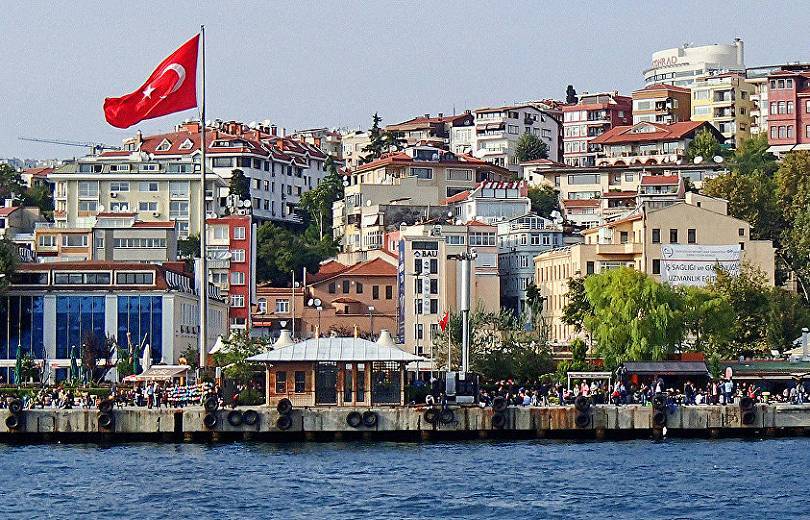
When will Turkey enter the Caucasus? Part 2: Genesis Armenia publishes an article by Political Scientist Abraham Gasparyan
Genesis Armenia think tank has published the second part of political scientist and candidate of political sciences Abraham Gasparyan’s article titled “When Will Turkey Enter the Caucasus” (Part 1).
From the perspective of international relations and international law, interstate treaties, agreements, pacts, and declarations reached between subjects of international law—although in formal and legal terms (I am not addressing the content of the agreements and their practical significance) they have a formal nature of preparation and application—in diplomatic and political practice, the fate or effective application of these agreements depends on other circumstances. No international treaty, agreement, declaration, or confidence-building measures have political weight—and they cannot have it—if there is no balance or correlation of forces under them. If there is no military, diplomatic, or political weight under a legal document signed by a state—which would be expressed between the lines of the agreement or declaration—the political and practical perspective of that document will become vague. If the military-political weight and capabilities of the state are not equal, or at least close to the capabilities of the other side signing the treaty, the validity of such documents remains questionable, becomes a trap for further adventurism, and in the event of a conflict, for escalation or re-escalation. If the balance of power is maintained, the parties signing the agreements are obliged to calculate and manage the risks of non-application, violation, or unilateral termination of the provisions of the agreement.
Let us consider the issue in the context of intergovernmental conflicts as well: no matter how agreements signed by subjects of international law enjoy interstate sponsorship, guarantees, and mandatory application provisions—the failure to comply with which will result in legal and political consequences—the mechanisms for resolving the issue cannot be confined solely to the textual provisions of agreements and legal practice.
On Oct. 7, 2023, following the anti-Israeli operation that began in Gaza, Tel Aviv killed 46,000 Palestinians, 90% of whom were civilians, including 34,000 women and children. No U.N. Security Council resolution was able to halt this course of war crimes. The Democratic administration in Washington, led by Joe Biden, made a merely cursory condemnatory statement, asserting that Israel had no right to indiscriminately bombard Gaza, but simultaneously declared that Washington would support Israel at all costs and protect its security. A seasoned politician like Benjamin Netanyahu understood very well that he could use Biden’s weak stance, especially given that on Oct. 18, 2023, ten days after the launch of Operation Al-Aqsa Flood, Biden visited Tel Aviv and clearly emphasized the need to ensure Israel’s security and the White House’s commitment to this issue.
In this context, it is worth highlighting that shortly after the Israel-Hamas ceasefire deal, Herzi Halevi, Chief of the General Staff of the Israel Defense Forces, submitted his resignation because he “could not keep the number of civilian and military casualties among Israelis within reasonable limits.” It is clear that there was a war and casualties could not be avoided, but the uncontrollability of the number of casualties became a reason for dismissal or resignation. This was, of course, not only due to the official’s decision; military-political relations in Israel have well-established traditions. In this country, politics is developed, implemented, and monitored with consideration for the state’s interests and institutional memory. We have witnessed similar cases since the day Israel was established—when this state was created “in the fire” in 1948, continuing to consolidate and survive through wars (1956, 1967, 1973), and after all these wars, the chiefs of staff of the Israel Defense Forces and defense ministers have either been summoned for questioning or voluntarily left their positions, being subjected to interrogation by parliamentary, judicial, or investigative bodies and commissions.
There needs to be a change in global political reaction regarding Armenia’s security. First, the discourse and actions directed toward the state’s internal and external audiences must align; the state and the political authority representing its goals must have a political value system, red lines that are non-negotiable. It is indisputable that negotiating with the U.S., Russia, or other major world powers on an equal footing is unrealistic, but should the negotiator express our red lines, our vital and security interests will be more perceivable. The Armenian government has no red lines, no negotiation agenda for short-term, medium-term, and long-term strategies with U.S. and European, Russian and Chinese decision-making centers, no clear conceptual framework, and no roadmap for actions; it lacks reliability, predictability, mutual trust, respect, and interpersonal trust connections. Amid the Azerbaijani president’s increased anti-Armenian and militant rhetoric and unfounded and false claims over Armenia’s sovereign territories, any document signed in the Armenia-Azerbaijan negotiation process will serve as a test of Armenia’s vigilance. The signing of such a document does not guarantee that the sovereign territory of the Republic of Armenia will not be subjected to aggression or attack, a fact that even the Armenian authorities have acknowledged.
The issue is somewhat complex, and despite the fact that Turkey is unlikely to send troops to Armenia for a variety of reasons—ranging from U.S. or Russian resistance to the clarification of the Turkish army’s status in Syria and the economic and geopolitical repercussions—if Erdoğan’s political appetite for enhancing Turkey’s geopolitical role is satisfied with Syria, I do not rule out the possibility of Turkish military activity along the Nakhijevan border. If U.S. President-elect Donald Trump manages to satisfy both the Kurds and the Turks with regard to the new security architecture of post-Assad Syria, Turkey will not show active involvement in the South Caucasus. If Ankara’s appetite is suppressed in Syria and its demands are at least partially met, Turkish military operations in Syunik will be unlikely in the near future. Nevertheless, Turkey—through Azerbaijan—is preparing for all possible scenarios.
The first scenario is a blitzkrieg or rapid attack: The Azerbaijani army enters Syunik, breaches the front line, forcing Armenia to accept capitulation. In such a scenario, the Armenian authorities will declare that they must avoid a new war and casualties and will sign a document “that will align with Armenia’s sovereignty and strategic interests.” Additionally, Turkey and Azerbaijan held another military exercise in Nakhijevan, the scripted scenario of which is the occupation of Syunik. In such a scenario, the Azerbaijani army will resort to intense shelling, large-scale offensive operations, and the use of drones.
The second scenario suggests infiltration through partial provocations. The goal is to capture small sections of the border to gain favorable positions for troop movements. This scenario will be accompanied by a massive media campaign, with Baku accusing Armenia of carrying out border provocations. In such a scenario, there will be what can be called “border battles”, which could escalate into a large-scale war. Official Yerevan will find it difficult to receive diplomatic support if the actions are presented as a “border issue”.
The third scenario is a full-scale war, aiming to force Armenia into capitulation. The Azerbaijani army will invade Armenian territory along the entire front with massive involvement of air force, equipment, and manpower.
What should be done in the case of the outbreak of war or Azerbaijani aggression? Iran and Russia can coordinate their actions to prevent the expansion of Turkey’s influence in the region. Everything must be done to ensure that Moscow and Tehran act as geopolitical counterweights, supporting the preservation of Armenia’s sovereignty.
Second, all diplomatic efforts should be made to establish a new framework for Iran-Russia-Armenia cooperation around security issues. If an Azerbaijani attack escalates into a full-scale war—which I do not consider likely—Tehran and Moscow could send joint forces to Armenia to stabilize the region. I do not consider this likely; however, a deterioration of the situation could lead to unconventional solutions. This is generally about the Greater Middle East. If the Trump administration, together with Israel, tightens the noose against the Turks and the seemingly pro-Turkish government in Syria and facilitates Kurdish autonomy in Syria, the situation will get even more complicated, and we will find ourselves in the crosshairs of Ankara’s aggression. In this case, Turkey will accuse Armenia of harboring members of the Kurdistan Workers’ Party—whom Ankara considers terrorists—in the Syunik Province and, under the guise of an anti-terrorist operation, will invade Armenia to open its route to the east. The issue is multilayered and relates to the strategic interests of several states.


